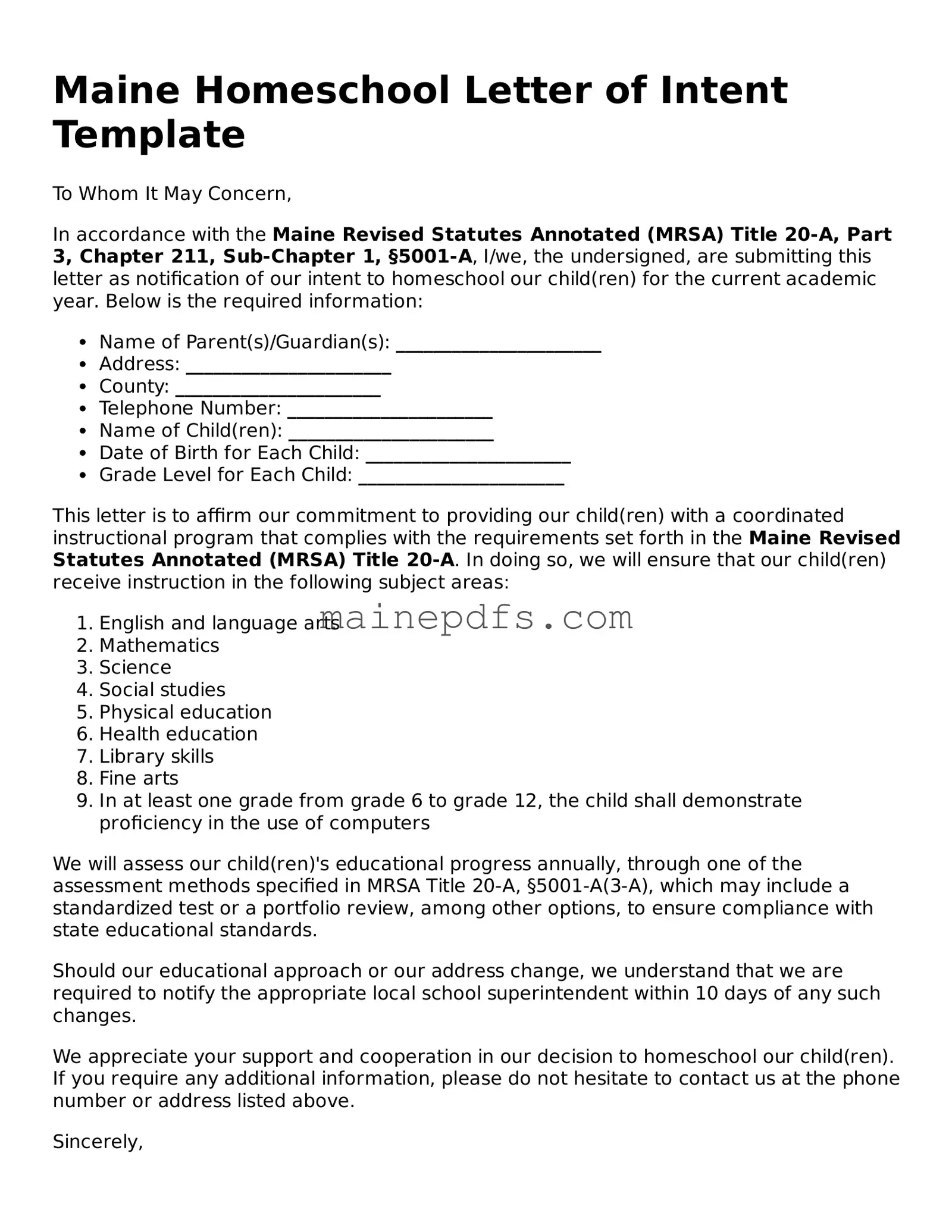Attorney-Approved Maine Homeschool Letter of Intent Template
The Maine Homeschool Letter of Intent form is officially used by parents or guardians to notify the local school district of their intent to homeschool their child. This form is a crucial step in complying with Maine's homeschooling regulations, ensuring the child receives education in alignment with state standards. For smooth and compliant homeschooling setup, ensure you complete and submit this form by clicking the button below.
Make My Document Online

Attorney-Approved Maine Homeschool Letter of Intent Template
Make My Document Online

Make My Document Online
or
Click for PDF Form
A few steps left to finish this form
Finish Homeschool Letter of Intent online — no paper, no scanner needed.